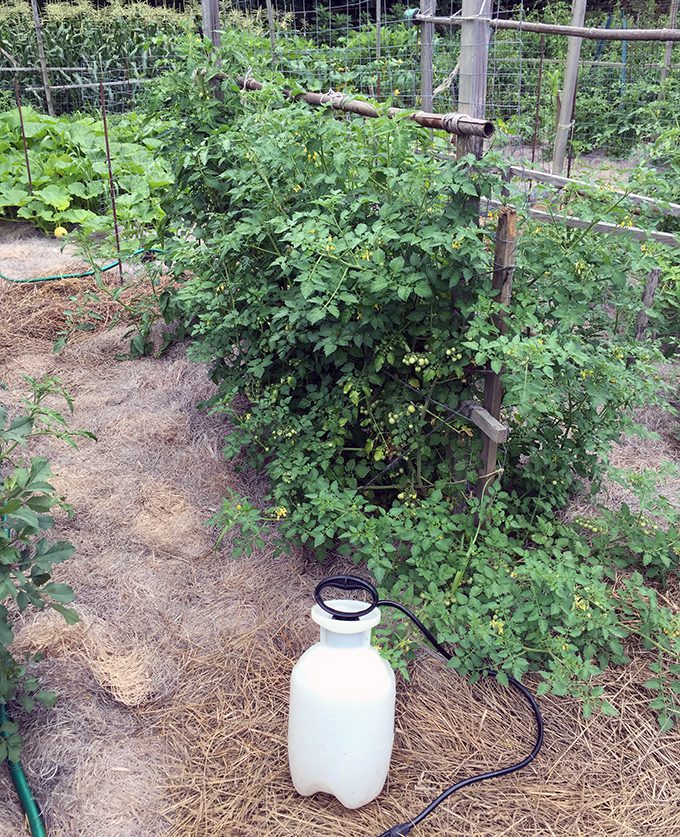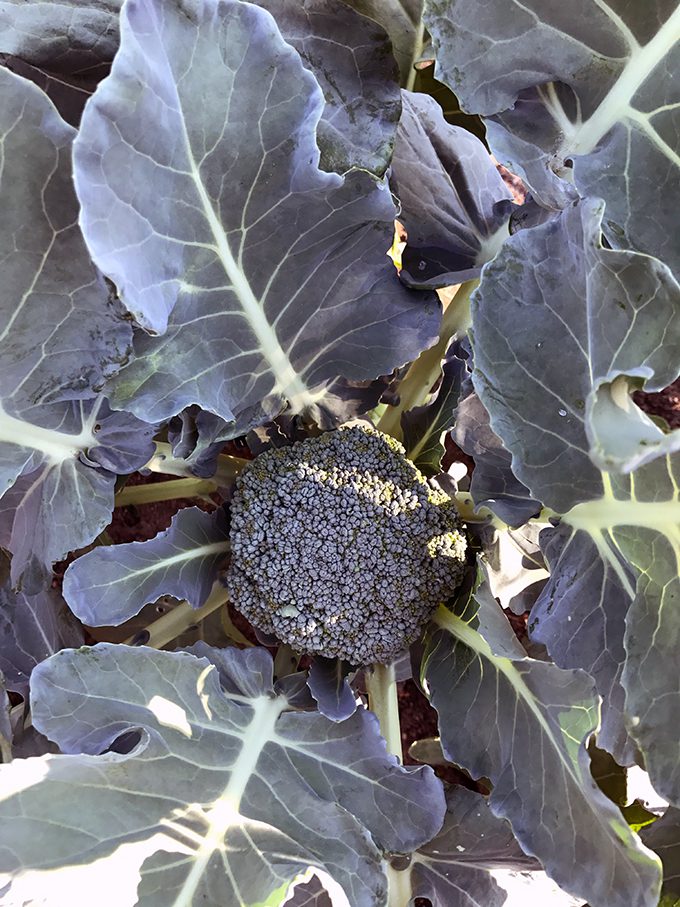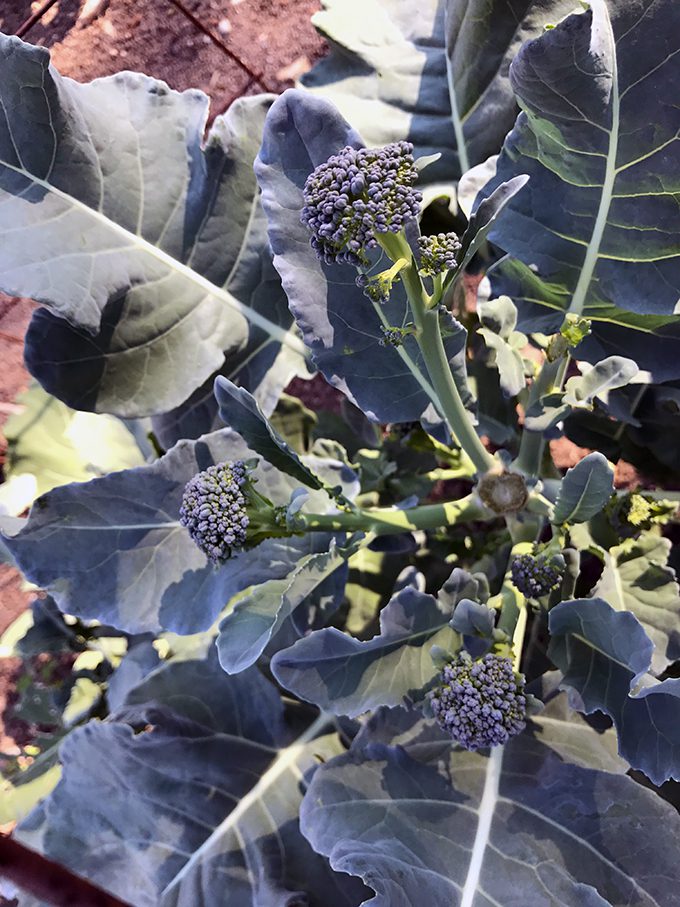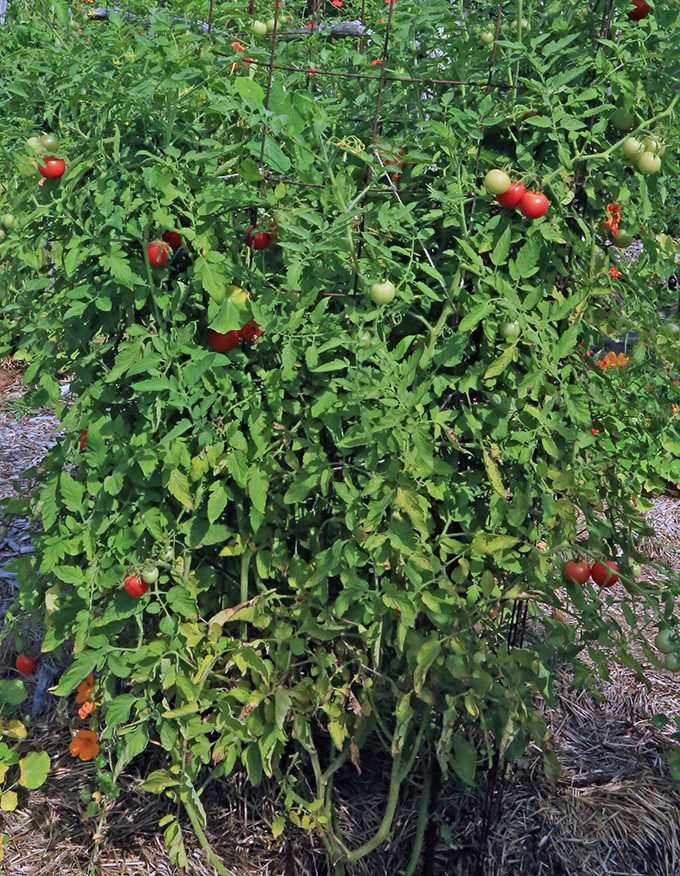Mid-July In The Vegetable Garden
Mid-July In The Vegetable Garden
The heat is on, and that means that our vegetable gardens should be growing gangbusters. Here’s a checklist of what to do in the veggie garden in mid-July.
- Weed, weed and weed. Most of us find that the weeds that were tiny over the Fourth of July are now monsters! Pull them quickly and often.
- Continue to spray tomatoes and squash with either Serenade or Revitalize. This helps fight early blight on tomatoes and powdery mildew on squash. These are both organic treatments for fungal problems. You can alternate one with the other if you want. Coat stems and leaves (top and bottom) as best you can. In my garden I add Turbo Spreader Sticker to the tank so that my organic fungicides stick on the plants.
- Monitor all your plants for leaf spot damage or other problems and remove the worst looking foliage.
- Harvest crops as they mature…don’t leave vegetables until they are too large. Smaller veggies taste better and picking promptly will encourage the plants to produce more. If allowed to form large beans or squash, for example, the plants slow down and stop flowering and fruiting.
- If a heavy rain is forecast, pick tomatoes that are ripe or nearly ripe. Tomatoes that are nearly ripe will split after a big rainfall, so harvesting them before the downpour is smart.

Continue to spray tomatoes every week to ten days to stall early blight. Use Revitalize or Serenade along with some Turbo spreader-sticker in your tank.

Many make the mistake of thinking that a broccoli head will get larger if they leave it on the plant. Once the head looks like this, however, it will just go into flower instead of getting larger. In general, home-grown broccoli is usually smaller than store bought. This one is ready to cut.

After cutting the main head off the broccoli plant you’ll see that they produce mini-heads for the rest of the summer. Cut these off and eat them as they appear. If you promptly harvest all side shoots, you’ll have broccoli all summer and fall.

Pick tomatoes before a rain.
- Fertilize if needed with Neptune’s Harvest Fish and Seaweed.
- Watch for insect damage and treat promptly if needed. Dusting with diatomaceous earth can knock insect populations down, or come into the store and we’ll help you find the right organic treatment for the problems you’re seeing.
- Finally, continue to plant! You can plant new crops of lettuce, arugula, carrots, kale, chard and radishes from seed now through August. Don’t let any part of your veggie garden go to waste.
Subscribe To Our Newsletter
Sign up for our weekly email about sales and events.
